<p><br></p><p><br></p><p>Nigeria, Africa’s most populous country and largest economy, has long been hailed as a democratic beacon on the continent. Since returning to civilian rule in 1999, the country has held multiple general elections, developed vibrant civil society networks, and maintained a relatively free press. However, beneath the surface of democratic structures lies a growing concern: has Nigeria become a kleptocracy dressed in democratic robes?</p><p><br></p><p>Democracy in Principle, Not Always in Practice</p><p><br></p><p>Nigeria operates under a constitutional democracy, complete with executive, legislative, and judicial arms of government. Regular elections are conducted, and political parties are active nationwide. Yet, many Nigerians remain disillusioned with a system that appears democratic on paper but often fails to deliver the dividends of democracy — such as justice, equity, and economic opportunity.</p><p><br></p><p>In recent years, public trust in political institutions has eroded due to widespread corruption, lack of transparency, electoral manipulation, and poor governance. While politicians promise reforms and national development, many Nigerians struggle with poverty, insecurity, unemployment, and crumbling infrastructure — realities that contradict the ideals of democratic governance.</p><p><br></p><p>Signs of Kleptocracy in Nigeria</p><p><br></p><p>Kleptocracy, or government by theft, is unfortunately not a new concept in Nigeria. From the infamous looting during military rule to contemporary scandals involving politicians and public officials, the misuse of public office for personal enrichment has become deeply entrenched.</p><p><br></p><p>Some key indicators of kleptocratic tendencies in Nigeria include:</p><p><br></p><p>Grand corruption: Billions of naira are routinely embezzled from public coffers. Investigations often stall or lead to slap-on-the-wrist outcomes.</p><p><br></p><p>Political patronage: Public contracts and appointments are often awarded based on loyalty rather than merit, enabling rent-seeking and stifling competence.</p><p><br></p><p>Weak accountability: Anti-corruption agencies like the EFCC and ICPC are sometimes politicized, and prosecutions rarely lead to convictions for the powerful.</p><p><br></p><p>Election fraud and vote-buying: Democratic processes are routinely undermined through rigging, thuggery, and vote manipulation.</p><p><br></p><p>State capture: A small elite controls vast resources while the majority of Nigerians live in poverty, with limited access to quality education, healthcare, or security.</p><p><br></p><p><br></p><p>The Cost to the People</p><p><br></p><p>The impact of kleptocracy in Nigeria is profound. Public funds that could transform education, healthcare, and infrastructure are diverted into private pockets. Youth unemployment fuels crime, terrorism, and migration. The collapse of basic services erodes public trust, leaving citizens alienated from government and cynical about democracy.</p><p><br></p><p>Moreover, kleptocracy threatens national unity. When corruption becomes the norm, ethnic and religious divisions are exploited for political gain, deepening social fractures and fueling regional tensions.</p><p><br></p><p>The Struggle for Genuine Democracy</p><p><br></p><p>Despite these challenges, Nigeria is not without hope. Civil society organizations, investigative journalists, whistleblowers, and concerned citizens continue to push for accountability and reform. The youth-led #EndSARS protests of 2020, for instance, showed the power of collective action against abuse and impunity.</p><p><br></p><p>To move from a struggling democracy toward a truly functional one, Nigeria must:</p><p><br></p><p>Strengthen institutions to operate independently of political interference.</p><p><br></p><p>Ensure transparency in public finance and procurement.</p><p><br></p><p>Protect the press and encourage whistleblowing.</p><p><br></p><p>Reform the electoral system to ensure free, fair, and credible elections.</p><p><br></p><p>Educate and empower citizens to hold leaders accountable at all levels.</p><p><br></p><p><br></p><p>Conclusion: A Question for the Future</p><p><br></p><p>“Democracy or Kleptocracy?” is not a philosophical question for Nigeria — it is a pressing, practical concern that shapes the lives of over 200 million people. The answer depends on the choices made by both leaders and citizens. Will Nigeria continue on a path where power serves personal interest, or will it embrace the hard work of building a just, transparent, and inclusive democracy?</p><p><br></p><p>The future of Nigeria rests not only in its elections but in the daily decisions of its people — to resist corruption, demand good governance, and believe in a nation where democracy is more than just a name.</p><p> </p><p> We know we have been ransacked,exploited,no one can save us but US.</p><p>Stand up and fight for your FUTURE</p>
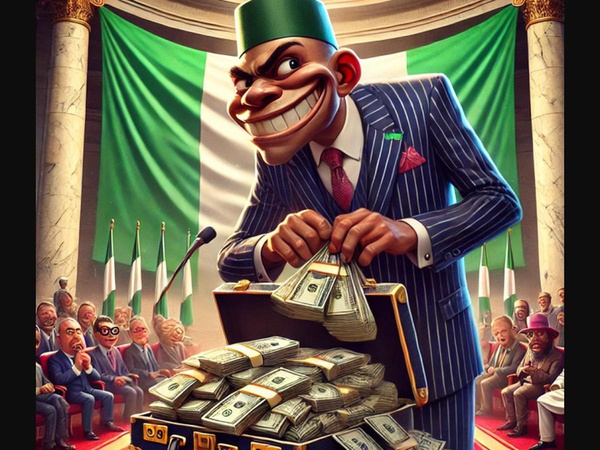
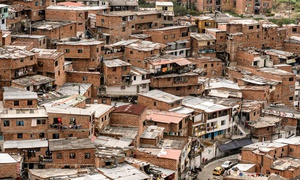
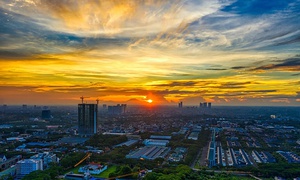
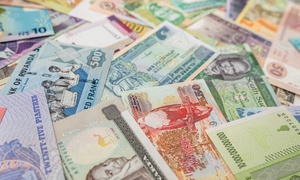

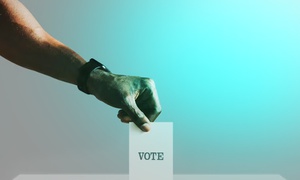
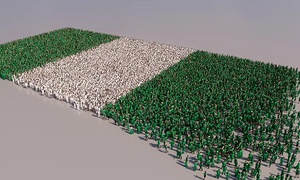


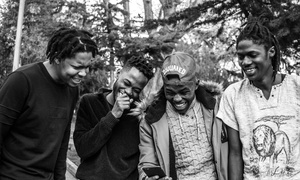










Comments